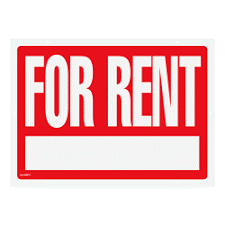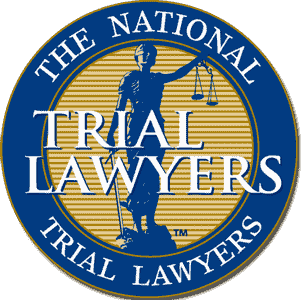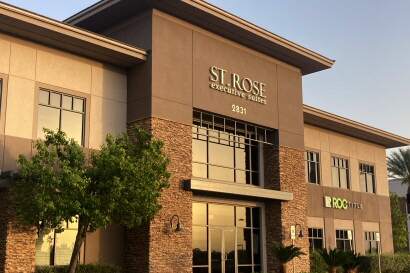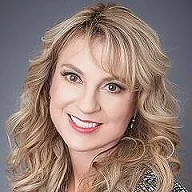What you Should know about Landlord Policies for Rentals
Estimated Reading Time: 10.1minutes

If you are renting out a residential property as a landlord, you need to
have enough liability coverage and property replacement coverage,
not actual value coverage. Check out this week’s blog to learn more.
Top Five Things to Know About Landlord Policies for Rental Properties
- Always purchase “replacement value coverage” and not “actual value” coverage.
- Know the Exclusions in the Policy like Flood and Earthquake;
- Be sure to Purchase Enough Liability Insurance;
- You need to Have a Landlord Policy If you do Live on the Property;
- You need Coverage for Liability for Accidents on your Rented Property.
You may ask yourself what is the difference between homeowners insurance and landlord insurance. There are a lot of significant differences between the two policies that have important coverage effects and legal ramifications. Similar to a homeowner’s policy, a landlord policy covers the building itself and any other structures on the property such as a pool house or detached garage. Generally speaking, to purchase homeowner’s insurance coverage you must live in the home. The name is misleading because just because you own the home doesn’t mean you should have a homeowner’s policy. If you are living in the home and renting out a room or part of the home you will want to discuss this situation with your agent. However, if you are planning to rent the entire property you really need to purchase landlord insurance.
You may be asking at this point what is landlord insurance? Landlord insurance is coverage for a property owner who is renting out a property as a residential home. As the landlord, it is important for you to protect yourself from financial loss that tenants or renters may inflict on the property such as fire or other damage. You can also obtain insurance on the property to cover loss of income in the event that your rental property becomes uninhabitable for a given period of time.
Landlord Insurance Covered Items
As discussed, landlord insurance covers damage to the actual building and some personal property for covered events such as storms, theft, or damage caused by the tenants residing in the property. Landlord insurance will cover the replacement costs (if you purchased a replacement policy and not an “actual value” policy”) of items in your rental property in the event of a total loss. Landlord policies also generally include liability insurance. This is coverage that will protect you against claims and lawsuits that arise from the property. This can occur if a tenant or visitor is injured on the rental premises and you find yourself being sued as a result. This can be extraordinarily important especially if the rental property has a pool and someone is injured in the pool. Your liability insurance will help cover the costs associated with injury claims that arise from accidents on property that you own.
Aside from personal injury claims, liability insurance will also cover you if a problem with the properties such as a leaking pipe or mold damage destroys a tenant’s personal property and they file a claim against you for damage to their property. It is extremely important to have liability insurance on your rental property. As noted earlier, liability coverage will also cover and compensate you for lost income in the event that the rental property becomes uninhabitable due to damage that is deemed to be a covered loss such as a storm or fire. Your loss of income coverage is also often referred to as “rental reimbursement coverage” and will prevent you from losing the income you would’ve had if you were collecting rent while the property is being repaired.
Like all other policies, you can also purchase “optional coverages“ as a landlord such as natural disaster insurance, rent guarantee insurance, and landlord contents insurance to cover your personal property such as furnishings or carpet you may have left in the rental property. Talk to your agent about what specifically you would like to cover on your rental property as the landlord.
Why Is Landlord Insurance Different From Homeowner’s Policy
“Landlord policies“ protect you from property damage to the premises as well as liability claims against you. Rental damage is damage that occurs when disaster or unexpected events caused substantial damage to the property. This coverage will cover damage by a tenant. It covers the cost of rebuilding or repairing the property. Like a homeowner’s policy, this coverage will have limits that you should be aware of, including deductibles and limitations on covered items. You will need to make sure you are covered at replacement and rebuild coverage. I usually recommend making sure your policy has up to 150% coverage which is generally referred to as replacement coverage.
You may be asking yourself if you have to have landlord insurance. Unlike car insurance, landlord insurance is not required by law but you would be extraordinarily unwise to leave your valuable property vulnerable by not carrying landlord insurance on rental properties. The same hazards can occur to your rental properties from fire, vandalism, and other disasters that can cause extensive property damage to your residence. If your property is damaged over $100,000 from a fire or storm and you do not carry this coverage, you will simply have to pay the damage out-of-pocket or accept the loss.
It is important to understand that rental insurance purchased by tenants does not cover the structure of your property. You need to purchase landlord insurance when you are not the resident of premises that you are leasing to someone else. Sometimes a landlord will leave a homeowners policy in place when they move out and simply continue to pay the policy when renters move in. This is an unwise decision. This could cause the carrier to deny coverage because they were not advised of the risk they are writing for and the policy could be deemed to have been fraudulently obtained. It is extremely important to be accurate and honest when applying for insurance because they can take the position that you did not advise them of the true facts and therefore were fraudulent in obtaining your policy. if you rent a premises, whether you once lived in it or not, at the offices of TheOneLawyer.com we would urge you to obtain a rental policy on that property.
Cost Associated With Landlord Insurance
Clearly this is difficult to answer in a vacuum because insurance rates vary considerably based on many underwriting factors. Rates can be as low as $500 per year for a small rental property or several thousand dollars a year for a large property with a swimming pool. Often times people assume that landlord insurance will be much less than homeowners insurance because of the fact that the carrier is covering less property because personal property contents are not usually covered. However the liability associated with rental properties is generally much higher and what you’re not paying for on personal contents you will be paying for the risks involved with renting property to persons who do not have the same respect for the premises that an owner would. Costs vary greatly depending upon your geographic location, the size of the property, how many overall rental units you have, the age and condition of the properties you are renting, whether your properties are up to current building codes, whether you have burglar alarms, whether the community that your property is located in is gated, whether the property has fire sprinklers installed in the units, the type and amount of coverage you are purchasing, whether the premises or complex has a swimming pool, and whether you allow people to smoke in the premises.
One thing that is for certain, rates can vary widely from carrier to carrier so you are well advised to spend the time to compare rates for landlord insurance policies in your area. A good agent can explain the coverage options available to you and look for discounts that you may qualify for to make the coverages more affordable. If you or a loved one has been injured on a rental property, please call the offices of TheOneLawyer.com today to discuss your injury. If you are a landlord and have questions about your policy, please feel free to call us for a free consultation with any questions you may have about coverages that may be available to you
Exclusions
This is perhaps the most important section that you should look at when you receive your Landlord policy, just like a Homeowner’s policy. It is a good idea to discuss the exclusions with your purchasing agent when buying your policy. All policies have different exclusions but many have standard exclusions. You do not want to learn of the exclusions at the time you need to make a claim. For example, flood insurance is almost never covered in a standard landlord policy if the flood water comes from somewhere off of your property. If this is the case, and the property is in a flood region, you will need to look into flood insurance. In addition, most policies do not cover things like earthquakes, landslides, mold, wear and tear, bug infestations, wind or hurricane damage or construction needed to bring the property up to code.
It is important that your review the exclusions in the policy you are leasing. If you live in an area of a country where the property may be prone to a landslide or an earthquake or a flood or any other damaging incident that is specifically excluded in the policy you will need to look into other coverage or determine if they provide that type of insurance for a different expense.
If you were a loved one has any question about insurance or has been injured in any type of accident please call the offices of TheOneLawyer.com today. We are a boutique law firm providing experienced and personal representation to injured clients. At the Law Offices of Laura Payne-Hunt, TheOneLawyer.com we provide professional and personal service to each and every one of our clients on various legal matters and have over 15 years of experience in reviewing insurance policies and in Nevada insurance law. If you have a question regarding any type of personal injury or paying your medical bills from an accident, please don’t hesitate to call the offices of TheOneLawyer.com and speak directly to attorney Laura Marie Payne-Hunt, Esq. a Henderson Injury Attorney for over 15 years. Laura is recognized as one of Nevada’s Top 100 Lawyers. She has the experience and knowledge to obtain the maximum settlement you deserve. Please call our office if you or a loved one is injured. We can make sure that you receive the care you need and deserve and advise on how to preserve evidence.
At our office, we are experienced in helping injured victims get the compensation they are entitled to. Insurance companies never have the best interest of the injured person at the top of their priorities. They want to pay as little on every claim as possible. Having worked for an insurance company as an attorney for 9 years before opening my boutique law firm specializing in helping injured people, I have reviewed thousands of auto accident claims and policy provisions.
At the Henderson and Las Vegas Accident injury law offices of TheOneLaweyer.com, Laura Marie Payne-Hunt and her staff are here to help you and your family in the event that accidents and tragedies occur. For any of your legal needs, do not hesitate to contact our Henderson and Las Vegas Accident injury offices. TheOneLawyer.com is a boutique, family owned law firm that specializes in helping injured people and the community of Las Vegas and Henderson Nevada with legal issues involving auto accidents, wrongful deaths, slip and falls, truck accidents, injuries to children, bicycle accidents, dog bites, product liability claims, and all types of injury claims. Please do not hesitate to call us anytime you have a legal question or you or a loved one has sustained an injury at 702-450-(HUNT) 4868 and text 24/7 at 702-600-0032.










